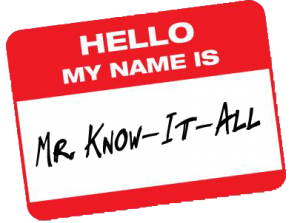It is foundational to our goals as an organization to teach students history in order to cultivate thinking citizens. But, we believe that our approach to history goes much deeper. By rooting our curriculum in a definition of history as the study of the past and not merely the past, we equip students to think critically. But this approach to history also cultivates humble citizens rather than arrogant students.

When teaching history only requires students to remember the past, students are not equipped to think for themselves. The necessary ability to evaluate sources and make evidence-based claims is left uncultivated. Instead, students race to prove that they know whatever information is on the test. But, as we’ve noted before, this only creates walking encyclopedias. If students can recall relevant (or seemingly irrelevant) information but do not have the skills to evaluate that information, they only mirror a google search. Like an encyclopedia, they can provide facts but offer no analysis.
A history curriculum rooted in the teaching of historical thinking, however, offers something better. Students can encounter different types of information and employ their skills of historical thinking in order to make meaning of that information. Rather than seeking to memorize, they seek to understand.
This is empathy. Quite simply, the definition of empathy is the ability to understand and share the feelings of another. Students who think historically, by nature, practice historical empathy. They seek to understand what is in front of them, whether it be historical events or people. They try to set aside their own biases in order to put themselves in the shoes of those that they study in order to best understand the actions and events that make up the past.
In contrast, students who only remember cannot cultivate those skills. Instead, they become entrenched in whatever narrative they were first presented with. They do not have the skills to ask questions of that narrative, compare it to other narratives, or contextualize it into a larger picture. Within this, pride can seep in as they seek to prove that they know more than someone else. They become arrogant students. When history is only about the retention of facts, whoever can retain more “wins.” History becomes a competition, not a conversation.
To avoid the cultivation of arrogance in our students, then, we must shift the paradigm of history education. We must break away from making knowledge about the past the end goal of our lessons. Rather, we must work to teach our students how to analyze the past, ask questions of the information they encounter, and seek to understand history’s complexities. When we do this, we can cultivate thinking citizens, yes. But, perhaps most importantly, we can cultivate humble and empathetic humans.